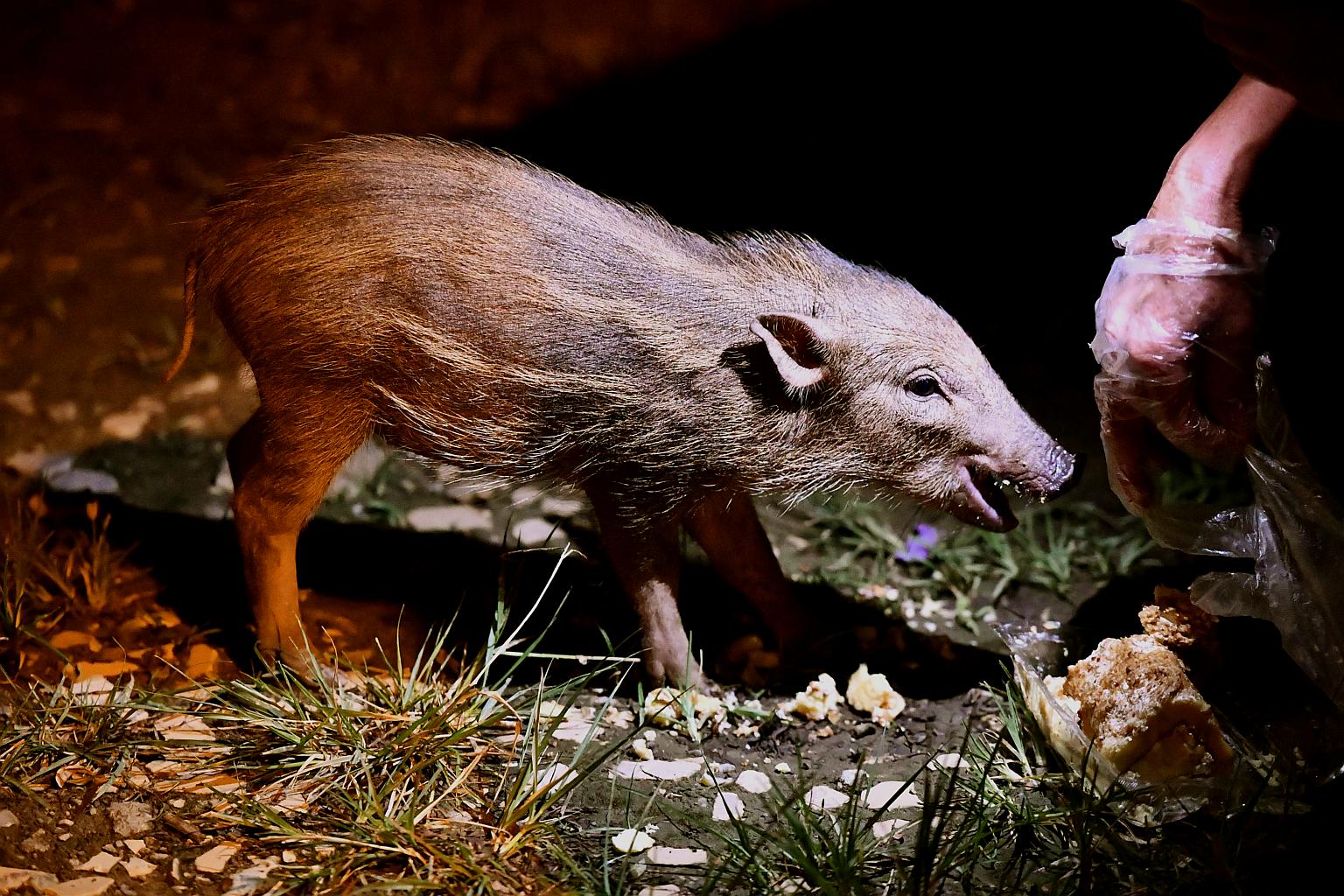Feeding of wild animals should be banned, say most Singaporeans in survey
Sign up now: Get ST's newsletters delivered to your inbox

The feeding of animals outside the nature reserve - such as this wild boar being fed bread in Pasir Ris - draws them even farther into public spaces and causes conflicts to start, says Acres.
PHOTO: ST FILE
SINGAPORE - Almost three-quarters of Singaporeans feel that the feeding of wild animals should be banned throughout the country, according to a new survey.
More than four-fifths also believe that animals should not be released into the wild without a permit, revealed a poll carried out via government feedback site Reach (Reaching Everyone for Activity Citizenry @ Home) from June to July.
The results were released on Thursday (Aug 16).
More than 1,000 Singaporeans gave their feedback to 11 questions on proposed amendments to the Wild Animals and Birds Act (WABA).
In February, Nee Soon GRC MP Louis Ng announced that he would propose amendments to WABA through a private member's Bill in Parliament, to better protect the wildlife in Singapore. Some of these amendments include giving trained citizens the powers to educate others about WABA, and giving companies heavier penalties than individuals for breaking the Act.
He formed a Wild Animals Legislation Review Committee that comprises stakeholders from the nature community, pest control companies, religious organisations, town councils and grassroots organisations.
Other results from the survey show that 66 per cent of respondents felt that current penalties are not adequate to deter individual offenders, while 90 per cent felt that the penalties for repeat offenders need to be more severe.
WABA was enacted in the 1960s, with little revision since, and also does not protect any invertebrates - animals without a backbone - such as the endangered horseshoe crab.
Mr Ng said: "Currently, animals receive a full suite of protection when they are in nature reserves and national parks. The problem is that the animal loses some protection once the animal leaves the nature reserves and national parks. This is the gap we are trying to fill in the amendments to the Wild Animals and Birds Act.
"Ultimately, the animals don't know where the boundaries of the nature reserves and national parks lie, and the same animal should receive the same protection regardless of where the animal is."
Members of the public will have more opportunities to share their views on the proposed amendments after the Bill has been drafted and before it is read in Parliament.
Deputy chief executive of the Animal Concerns Research and Education Society (Acres), Mr Kalai Vanan Balakrishnan, said: "On a daily basis, we see animals being fed outside the nature reserve, which draws them even farther into public spaces and causes conflicts to start. The proposed amendments to WABA will help in this critical area."


